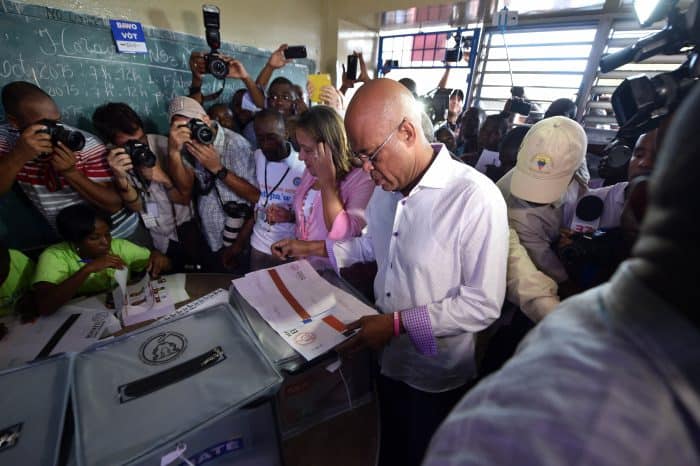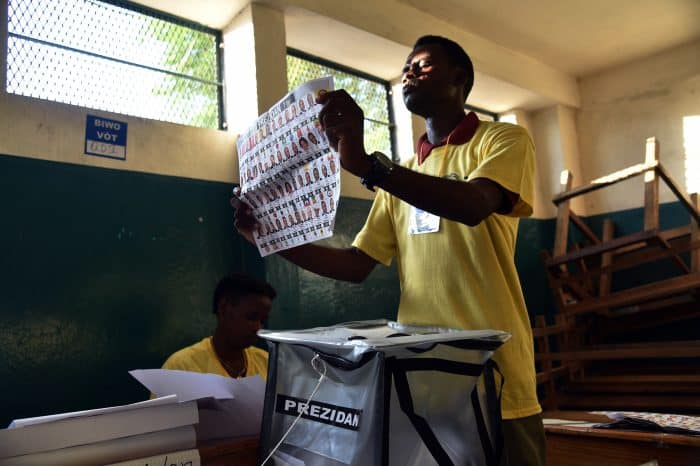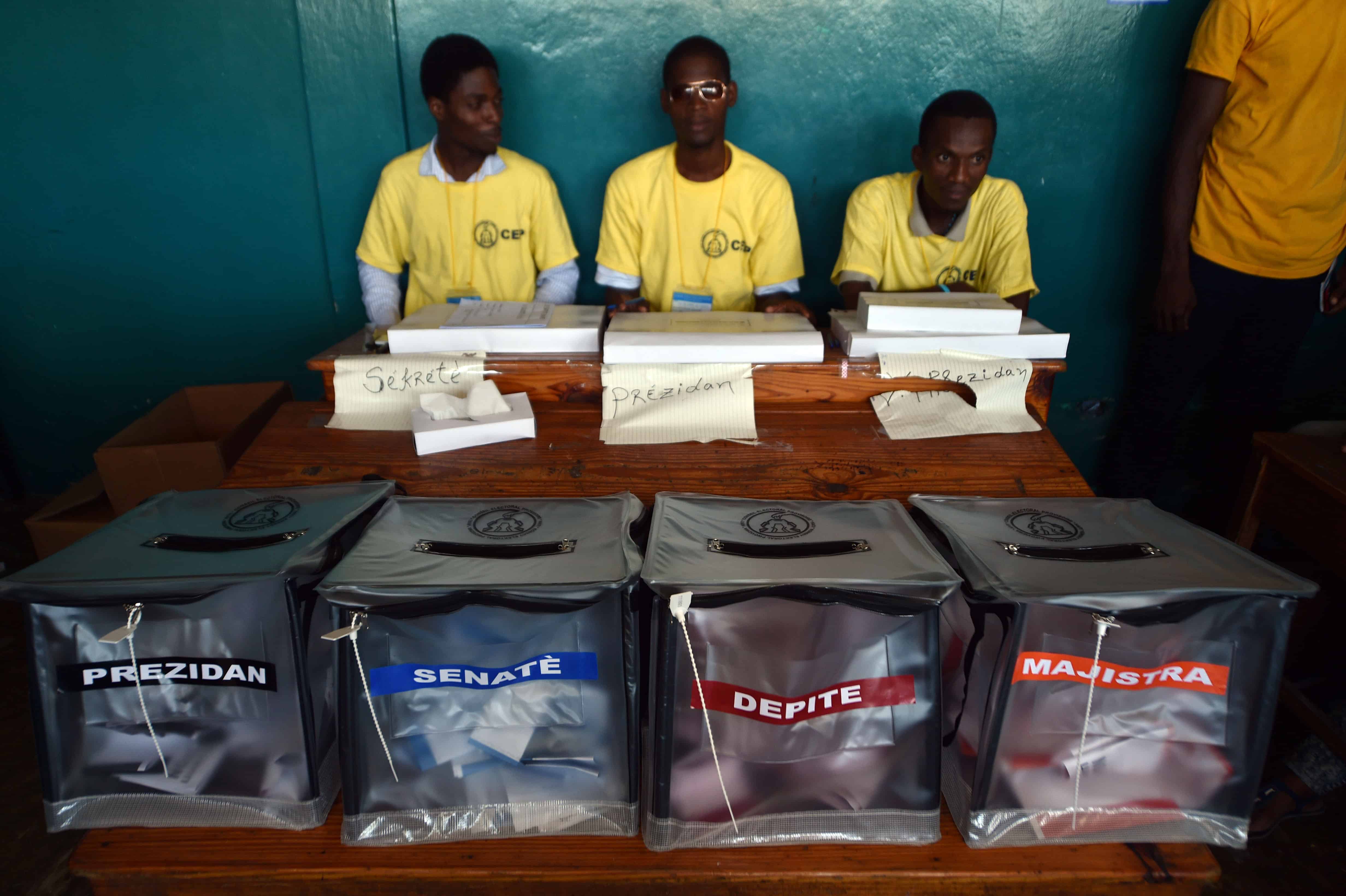PORT-AU-PRINCE, Haiti – Haitians voted for a new president Sunday as the poorest country in the Americas seeks to shed chronic political instability and get back on its feet.
Though voting unfolded in a climate of uncertainty, there was a large turnout without major incidents as Haitians cast their ballots to choose a new president, lawmakers and local officials.
In Port-au-Prince, people stood in long lines outside polling stations, a sight unseen in Haiti in more than a decade.
This marked a major change compared to the last voting day, when two people were killed in sporadic violence in August.
Authorities took precautions as a result, with police deploying some 10,000 officers, backed by 5,000 from the U.N. peacekeeping force MINUSTAH in a bid to keep matters under control.
“On August 9, I had left home to go vote, but I saw people pushing each other around, people causing mayhem and throwing things. So I turned around because I didn’t want to have bottles thrown at me,” said Franzty Jeudi.
“Today, it’s going really well. I came to vote with my parents and we are at ease,” said the smiling 26-year-old.
Despite delays caused by logistical challenges, voters waited calmly under sunny skies to cast their ballots.
Some expressed hope that the polls — the only one of several recent Haiti elections to take place on schedule — could bring change. Results, however, are not expected before early November.
At the large Canape-Vert market, in the heart of the capital, Electoral Council workers checked voters’ identification cards.
“The police had a good strategy. I’m satisfied. They corrected a lot of things since August,” said Willy Saint-Fort after casting his vote in one of the four ballot boxes placed set up in a stall where fruits and vegetables are usually sold.
“Enough with provisional governments and violence,” added Saint-Fort, 43.

‘Great success’
At a small public school near the Champ de Mars, housing the presidential palace, voters expressed the same confidence.
“This election took place without any irregularities,” said Frantz Philemon. “We expressed our wishes as citizens for difference in our country. It was a great success.”
By midday, 73 arrests had been made, with those taken into custody in possession of multiple voting cards or fake proxy papers, according to police.
“The police are in control of the situation,” police spokesman Frantz Lerebours told AFP. “There were several attempts to disrupt voting but the officers immediately stopped those attempts.”
The elections come nearly five years after President Michel Martelly came to power in a country that has failed to find democratic stability since the end of the 30-year Duvalier dictatorship in 1986.
The pop singer and political novice assumed office in 2011, the year after a catastrophic earthquake killed more than 200,000, flattened most buildings in the capital and left hundreds of thousands living on the streets.
Five years on, more than 85,000 people still live in makeshift camps, according to Amnesty International.
And a nagging conflict between the executive branch and the opposition since Martelly came to power delayed the staging of legislative polls for years.

Dozens of contenders
Fifty-four candidates are running for Haiti’s highest office and a chance to lift the destitute nation out of its systemic poverty. But that abundance of hopefuls is not a sign of democratic health. Most are unknown to the general public, and only a handful have released policy platforms.
“The debates were shallow. The candidates only spoke in generalities. None of them showed that they are in a position to manage the situation well,” said Haitian economist Kesner Pharel.
One of the few candidates to emerge from the crowded field is Jude Celestin, of the LAPEH party, who was eliminated from the second round in the controversial 2010 vote following an OAS recount and is considered the frontrunner this time.
“We are headed straight for a victory at the first round,” Celestin told AFP as he voted at the school in Petionville Sunday morning, urging supporters to keep turning out, and to do so peacefully.
But there is also a groundswell of support in some areas for Maryse Narcisse, a physician and longtime activist of the Fanmi Lavalas party.
Narcisse has the powerful and very public backing of former president Jean-Bertrand Aristide — and for some Haitians, that is enough. Aristide, a divisive figure who returned from exile in 2011, is revered among the many poor in the capital.
Whoever takes over from Martelly on Feb. 7 will face huge challenges and a humanitarian emergency.
Six million of Haiti’s 10 million people live in extreme poverty, getting by on less than $2.50 a day.






